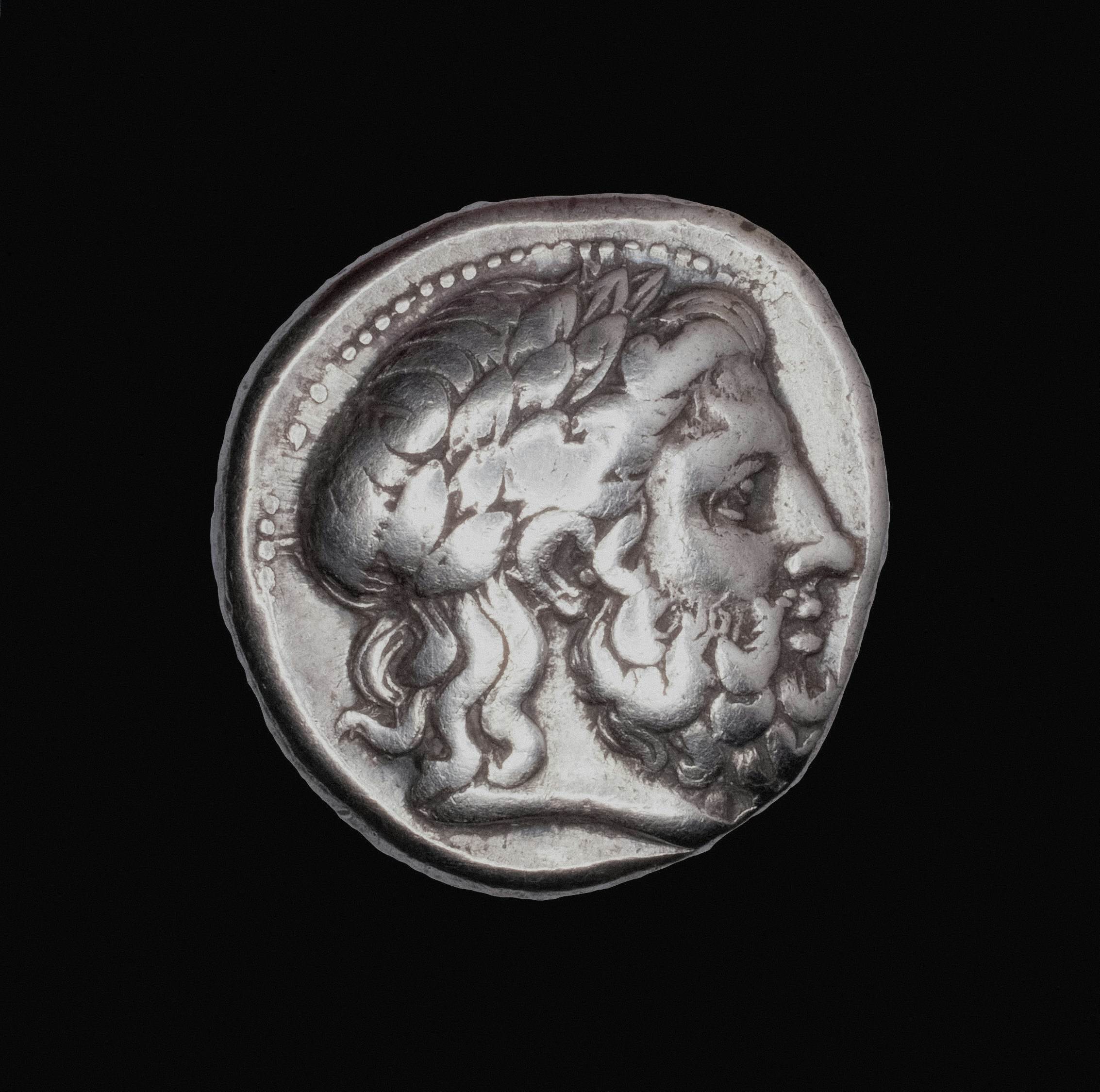We’ve been walking through the Gospel of Mark for some time now, and recently we arrived at a well-known but often misunderstood moment—Jesus’ encounter with the Pharisees and Herodians in Mark 12:13–17. It’s a short exchange, but one packed with meaning about taxes, politics, allegiance, and the human heart.
Jesus’ response to their trap, “Render to Caesar the things that are Caesar’s, and to God the things that are God’s,” is more than clever—it is confrontational. It doesn’t just sidestep their question. It presses a far more important one to us: Whose image do you bear?
The Unholy Alliance
Mark 12 introduces us to an unlikely partnership. The Pharisees and Herodians—two groups fundamentally opposed in both politics and piety—suddenly find common cause. What could unite them? A shared hatred of Jesus.
The Pharisees were religious purists, fiercely opposed to Roman rule. The Herodians supported the Roman-appointed dynasty of Herod. These groups didn’t sit at the same table—unless the name “Jesus” was on the agenda. And so, as Psalm 2 foretells, “The kings of the earth set themselves… against the LORD and against his Anointed.”
It’s not the first time these two forces have aligned. Back in Mark 3:6, the Pharisees held counsel with the Herodians to figure out how to destroy Jesus. Now, in Mark 12, they renew their effort.
They begin with flattery: “Teacher, we know that you are true… you truly teach the way of God.” Ironically, what they said about Jesus was true. He is a man of integrity, impartial and unmoved by appearances. But their motives are poisoned with manipulation.
Then they spring the trap: “Is it lawful to pay taxes to Caesar, or not?” Say yes, and Jesus could be labeled a Roman sympathizer. Say no, and He could be handed over to the authorities as a rebel. Either way, they thought they had Him pinned.
Tested Again and Again
When Jesus responds, “Why put me to the test?”, He’s not just addressing the question in front of Him—He’s pointing out a pattern. This wasn’t the first time religious leaders had tried to trap Him, and it wouldn’t be the last. They had been doing it all throughout His ministry, trying to discredit, confuse, or incriminate Him.
But Jesus had already faced the ultimate test at the very beginning of His public ministry. Driven into the wilderness by the Spirit, He was tempted for forty days by Satan himself. There, He refused to bend, quoting Scripture, “You shall not put the Lord your God to the test.”
Now, once again, the forces aligned against Him are testing Him—not out of sincere inquiry, but with malicious intent. Their question wasn’t genuine. It was a snare. And behind their plotting lies the same source as before: the evil one.
This moment is part of a larger spiritual battle that spans the whole of Mark’s Gospel. Jesus is not just walking through Galilee doing good works—He is advancing the kingdom of God into enemy-held territory. From the wilderness to the cross, He consistently absorbs the attacks of Satan and his agents. But unlike any of us, He never falters. He enters the darkness, withstands every test, and drives the enemy back.
His holy war is unlike anything we could ever fight. It was waged not just for His own vindication but for our salvation. In a world broken by Adam’s sin, Jesus—the last Adam—stands where the first fell, reclaiming what was lost and securing victory for His people.
So when we read this story, it’s not merely about a clever response to a trick question. It’s a window into a far greater struggle—and a moment for us to thank the Savior who stood firm under pressure and never once gave in.
The Coin and the Kingdom
Then Jesus asks for a coin. He didn’t have one in His own pocket. They brought Him a denarius—the very coin used to pay the tax—and He asked: “Whose image and inscription is this?” “Caesar’s,” they replied.
And here comes the instruction: “Render to Caesar the things that are Caesar’s, and to God the things that are God’s.”
Caesar may own the coin. But God owns you. Because you bear His image.
Living Between Two Kingdoms
Jesus’ answer gives us a framework for life in a fallen world. As Christians, we are to be good citizens—praying for our leaders, obeying laws, paying taxes. But our ultimate identity is not rooted in any flag or ruler of this world. Our truest citizenship is in heaven.
This is not a call to disengage, nor a license to abandon responsibility. But it is a reordering of loyalty. Christ’s followers are not defined by political tribes. Consider two of Jesus’ disciples: Matthew the tax collector and Simon the Zealot. Matthew represented big government—he collected taxes for Rome. Simon represented no government—he likely refused to pay taxes and supported rebellion. And yet, they were brought together under the Lordship of Christ. They both would be instructed by the Savior.
What united them was not politics, but the King.
As Dave VanDrunen says:
Christianity was never meant to eliminate distinctions in familial, ethnic, political, or economic association. What Christianity was meant to do was to unite people from different families, different ethnic groups, different political factions, and different socio-economic standings into a single community, ‘baptized into one body—Jews or Greeks, slaves or free …’ (1 Cor. 12:13).
—Bryan D. Estelle, The Primary Mission of the Church: Engaging or Transforming the World?, ed. Matthew Barrett and J. V. Fesko (Mentor, 2022), 33.
The church is where diverse people are united by a shared King and a shared baptism, not a shared platform or party. Our unity is in Christ—not in Caesar, not in ideology, but in the blood that reconciles sinners from every background.
Limits to Caesar
Yes, we render to Caesar what belongs to Caesar. But we do not render what belongs only to God. The state is not God. It is not owed our worship. It cannot claim our conscience.
The early Christians knew this well. For refusing to call Caesar Lord, many were torn by lions or executed in coliseums. Their confession remained firm: “Jesus is Lord.” Not a lord—the Lord.
That confession cost them everything in this life. But it gained them everything in the next.
Are We Rendering to God?
Jesus’ words call us to examine our lives. Are we truly rendering to God what is God’s?
Think of the vows we take as church members: “Do you promise to support the church in its worship and work to the best of your ability?” It’s a gracious question—recognizing our limitations. And yet it challenges us: Are we giving God our best?
Time and money rarely lie about where our hearts truly are. They reveal what we value most.
So—are we offering God sincere worship? Are we serving Christ’s Church faithfully? Are we holding loosely to the things of this world and clinging tightly to the kingdom of heaven?
Because everything is God’s.
Your body is not your own. Your time is not your own. Your money, your affections, your gifts—all of it belongs to God. We’ve been stamped with the image of the supreme authority in heaven and on earth. Let us render to God what is His.
Caesar can own the denarius. But he does not own you.
God owns you.
The One Who Rendered Perfectly
None of us has rendered perfectly. None of us has loved the Lord with all our heart, soul, mind, and strength. But the good news of the gospel is this: Jesus has.
He bore the image of the invisible God. He rendered perfect obedience to His Father—all the way to the cross. He gave to Caesar what was Caesar’s. But more importantly, He gave to God what was God’s—His very life.
At the cross, Jesus paid the debt we owe—not to Caesar, but to divine justice. And through His resurrection, He has brought us into a kingdom that cannot be shaken.
So, come. Render your heart to the One who reigns over every ruler and whose kingdom shall never end.
You belong to the King whose image you bear.

